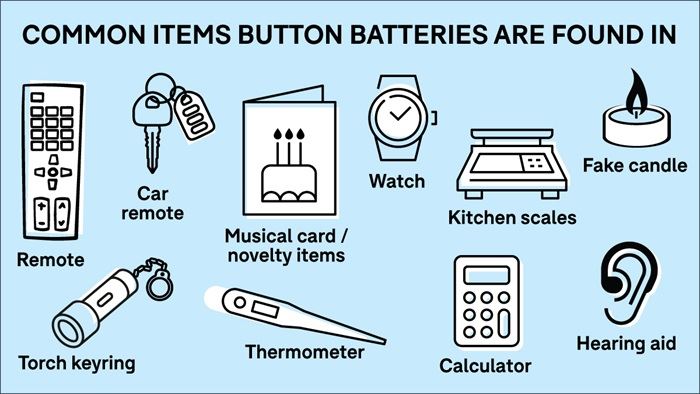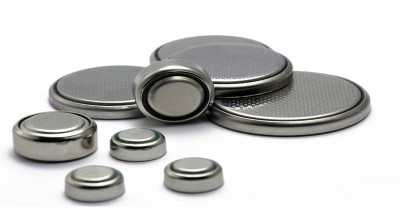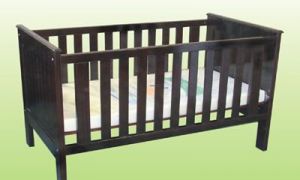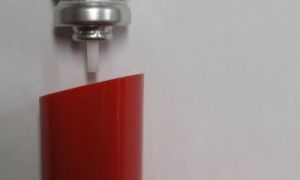Most button batteries are smaller than a five-cent piece, but the physical damage they can cause can be fatal. Button batteries can cause serious internal burns or death when swallowed.
Many children can swallow a disc battery without choking or coughing, which means unless someone sees them do it, parents or carers will be none the wiser. Kidsafe Queensland CEO Susan Teerds says the smooth, shiny look and feel is also particularly appealing to younger children who like to put things in their mouths. The soft tissue in the oesophagus and gut don't register pain very well, so the battery can burn severely without clear symptoms.
What Happens When A Child Swallows A Battery
If you suspect your child has swallowed or inserted a button battery, call the Poisons Information Centre immediately on 13 11 26 for 24/7 fast, expert advice. If your child is having any difficulty breathing, contact 000.
Once the battery starts to burn, the symptoms can range from feeling ill and grizzly to having a mild cough. A child may start to gag or choke, drool, suffer chest pains, cough or breathe noisily. They may vomit blood or refuse food, have bloody bowel motions or nose bleeds or unexplained fever.
Symptoms to watch out for include:
- gagging or choking
- drooling
- chest pain (this may present as grunting)
- coughing or noisy breathing
- unexplained vomiting or food refusal
- bleeding from the gut — black or red vomit or bowel motions
- nose bleeds — sometimes this can be blood vomited through the nose
- unexplained fever
- abdominal pain
- general discomfort
- spitting blood or blood-stained saliva
- bloody discharge from ear or nose.
Children between the ages of 12 to 24 are more likely to swallow these batteries and won't be able to tell anyone due to limited language skills. There may be none of the symptoms above. If you suspect a child has swallowed a button battery, then ask for an X-ray from a hospital emergency department to make sure.

Content credit: Kidsafe SA and SA Health.
Safety Tips:
To keep your child safe from the danger they pose, follow these safety tips:
- Reduce the number of products in your home that are powered by button batteries. Although injury can still occur with cylindrical batteries, it is much less common. Where possible, opt for products powered by alternative batteries or power sources, or those with enclosed batteries (USB rechargeable).
- Secure button batteries and the products they power. Only purchase button batteries in child-resistant packaging. Products containing button batteries should be durable, with child-resistant battery compartments that will not open if dropped.
- Know which products in your home contain button batteries. Regularly check that the battery is still secured in the child-resistant compartment. Where you can, keep them out of reach of small children (and be mindful that children often climb furniture to access higher areas).
- Dispose of spent and unused batteries immediately and safely – 'flat' batteries are still dangerous. Wrap both sides with sticky tape when you take them out of the product. This reduces the fire risk if you are storing them for recycling and makes them trickier to swallow.
- Recognise the signs and symptoms of occult ingestion; gagging, drooling, unable to eat properly, noisy breathing, chest pain (grunting), vomiting or passing black or red blood in stools.
- Respond immediately if you suspect someone has swallowed or inserted a button battery. Not every health facility has the capacity to assess or manage a button battery injury, so call the Poisons Information Centre first on 13 11 26 (24/7) for fast expert advice.
- Warn others about the dangers of button batteries.
Please Note: This should be used as a general guideline only.
References:
What To Do If A Child Swallows A Battery, Queensland Government, Department of Education, 23 November 2020
The Hidden Dangers Of Button Batteries, Choice Australia, 3 November 2020
Button Batteries: Tiny Batteries. Big Danger, Product Safety Australia, 20 October 2020






